In recent years, BetterHelp has gained massive visibility through influencer marketing, celebrity endorsements, and high-profile sponsorships with popular podcasters like Alex Cooper, Alix Earle, and Nick Viall. However, this success has been marred by privacy violations, manipulation allegations, and multiple lawsuits questioning the company’s ethics and user care practices. With increased scrutiny, both BetterHelp and its endorsers are now under pressure to address the public’s concerns. This article delves into the lawsuits, explores the backlash from celebrity endorsements, and emphasizes why reputation matters in protecting user trust and brand credibility.
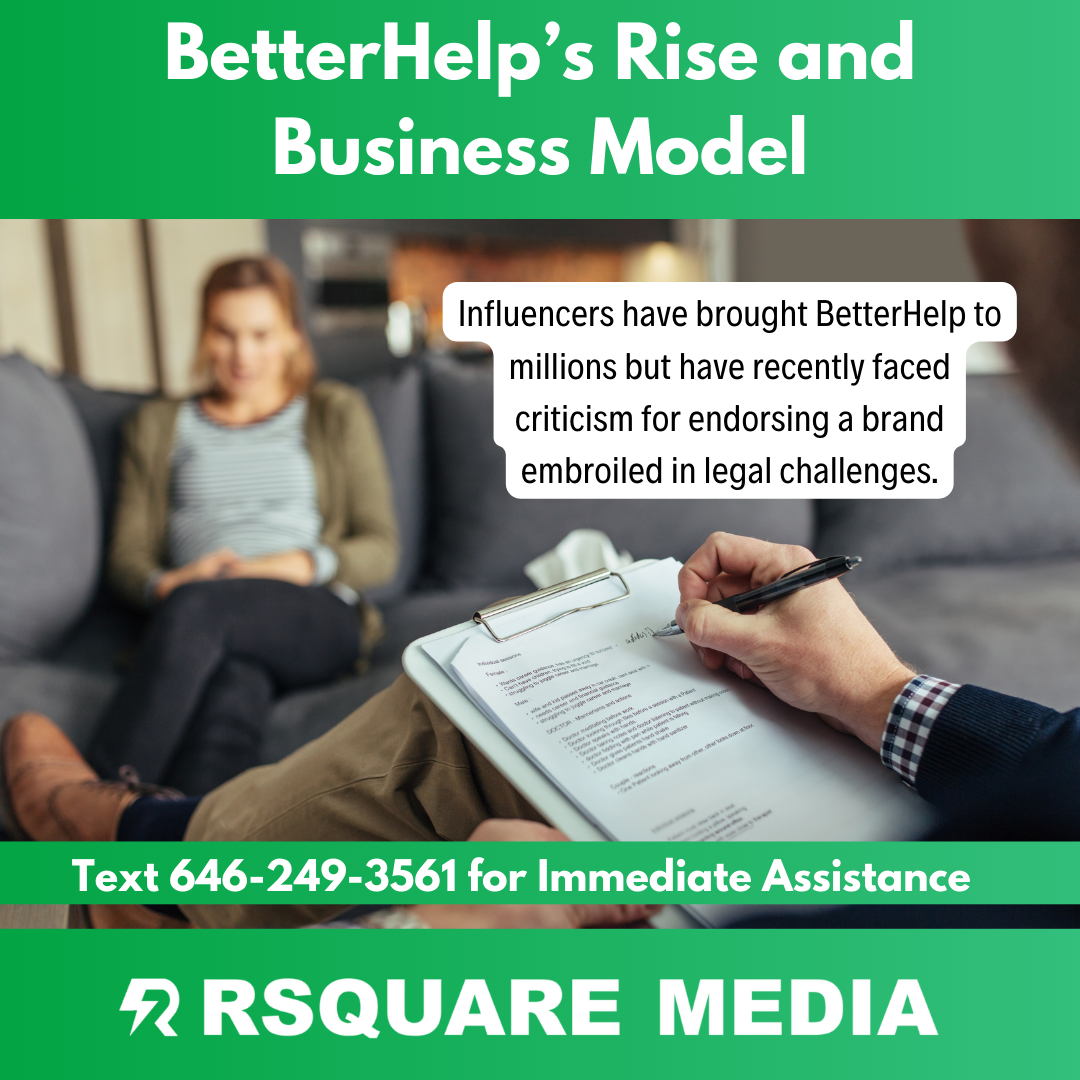
Section 1: BetterHelp’s Rise and Business Model
- History and Growth: BetterHelp, a subsidiary of Teladoc Health, was launched to make therapy accessible by connecting users with licensed therapists via a subscription-based model. This convenience, combined with prominent endorsements, led to a rapid rise in popularity.
- Business Model and Marketing Strategy: Unlike traditional therapy, BetterHelp operates on a membership model, where users pay monthly fees to access therapists. The company heavily invested in digital marketing, collaborating with influencers to target millennial and Gen Z audiences.
- Influencer Sponsorships: Discussing the role of major influencers and celebrities in BetterHelp’s marketing strategy. Influencers have brought BetterHelp to millions but have recently faced criticism for endorsing a brand embroiled in legal challenges.
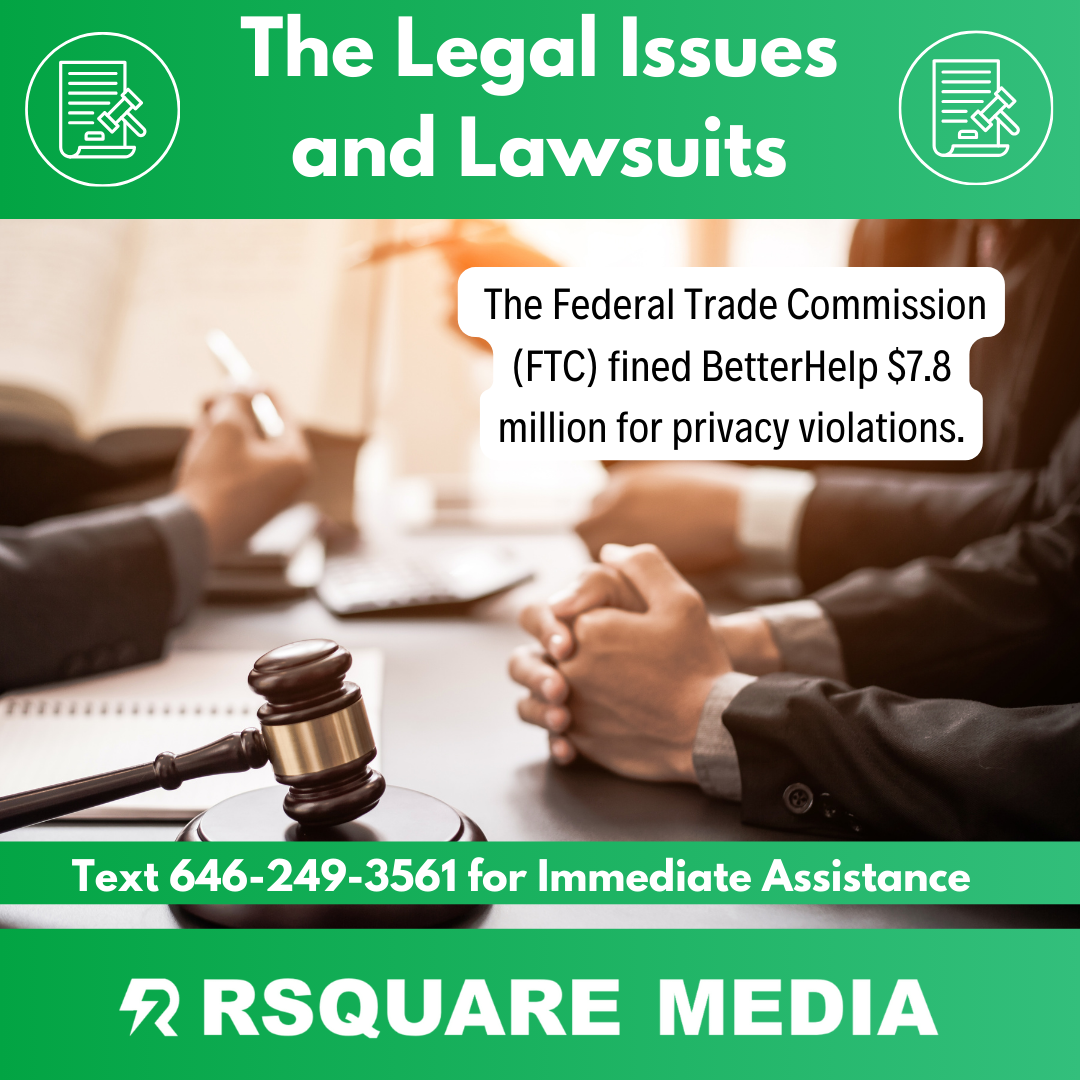
Section 2: The Legal Issues and Lawsuits
- FTC Settlement: Earlier in 2023, the Federal Trade Commission (FTC) fined BetterHelp $7.8 million for privacy violations. They allegedly shared users’ sensitive information with social media platforms to create targeted ads, sparking major backlash over breaches of user confidentiality.
- Class Action Lawsuits: Following the FTC fine, multiple class action lawsuits were filed against BetterHelp, with accusations of misrepresentation, data sharing without consent, and a lack of effective therapeutic care. These lawsuits highlight concerns over client treatment and BetterHelp’s credibility as a trusted service.
- Allegations of Manipulation and Improper Care: Plaintiffs in the lawsuits claim that BetterHelp mismatches clients with therapists, which can lead to ineffective treatment. This raises broader concerns about the platform’s commitment to delivering genuine mental health support.
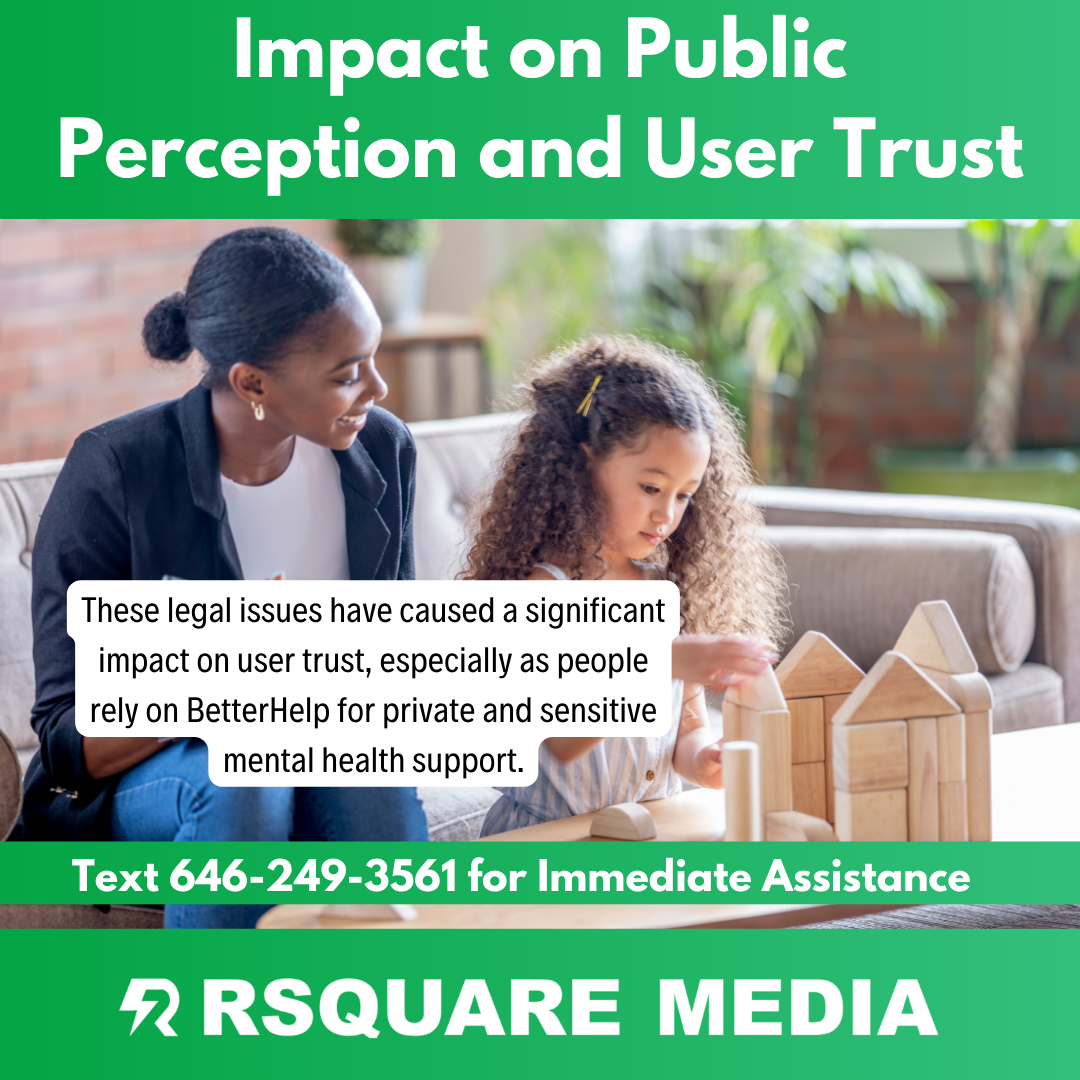
Section 3: Impact on Public Perception and User Trust
- Erosion of Trust: These legal issues have caused a significant impact on user trust, especially as people rely on BetterHelp for private and sensitive mental health support. The violation of privacy by data sharing damages client confidence, which is essential for platforms in the mental health industry.
- Online Backlash: Social media has been filled with user complaints, criticisms, and concerns over data security. BetterHelp’s reputation has suffered as users share stories of alleged mistreatment and manipulation, causing a ripple effect across social media platforms.
- Importance of Transparency: To maintain trust, companies in the mental health field must prioritize transparency in their operations, including how they manage data. BetterHelp’s controversies serve as a case study in how quickly a lack of transparency can hurt a brand’s image.
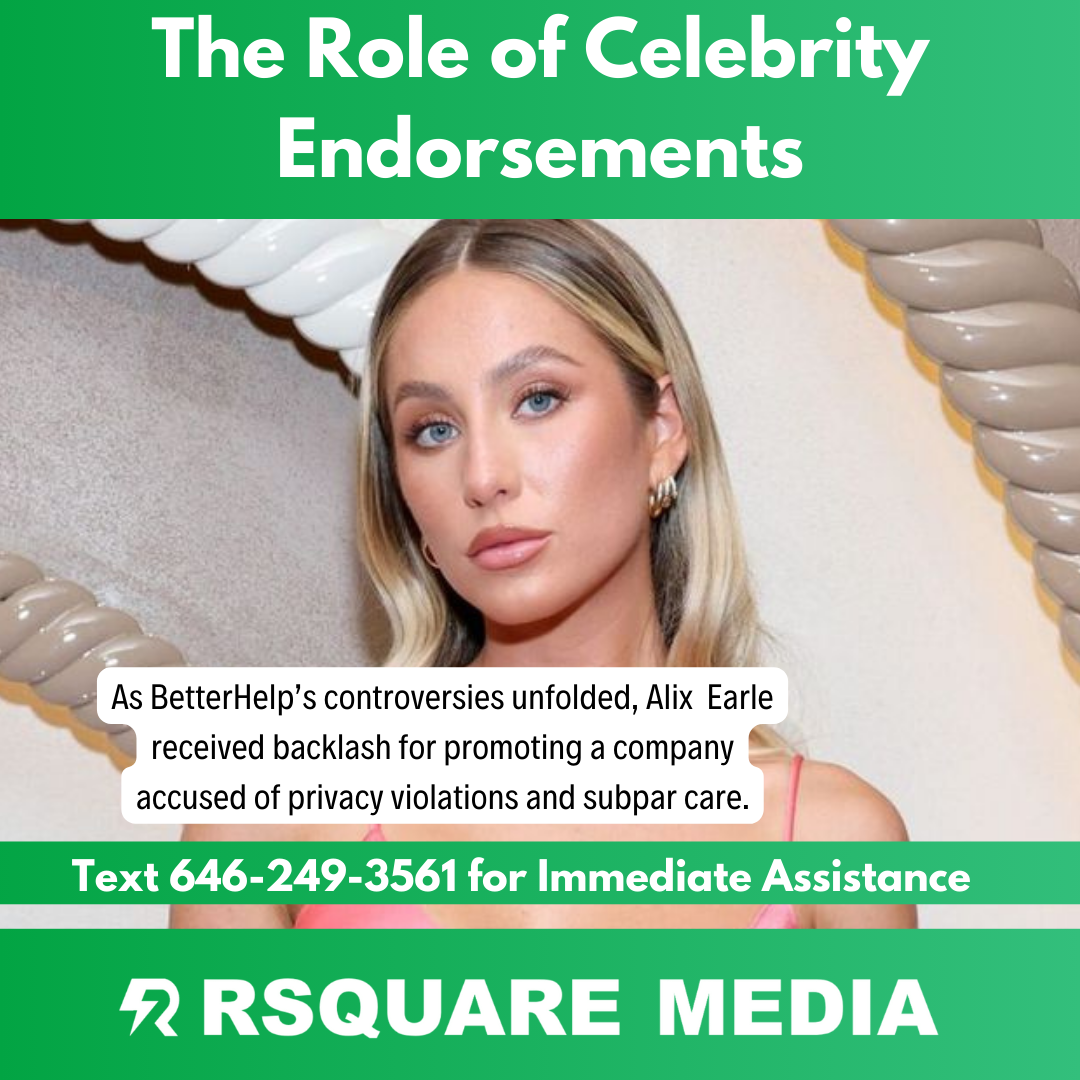
Section 4: The Role of Celebrity Endorsements
- Celebrities and Influencers Under Fire: Discussing how high-profile figures like Alex Cooper, Alix Earle, and Nick Viall, who have endorsed BetterHelp on their platforms, are now facing scrutiny. As BetterHelp’s controversies unfolded, these influencers received backlash for promoting a company accused of privacy violations and subpar care.
- Case Studies of Influencer Backlash: How backlash directed at celebrity endorsers often questions their responsibility in choosing brands, particularly when endorsing products related to mental health. Influencers are urged by the public to vet brands more carefully.
- Influencer Responsibility in Mental Health Endorsements: There is a growing movement to hold influencers accountable for the brands they support, especially in areas impacting mental health. Influencers must consider the ethical implications of their partnerships, as public opinion expects more responsibility in endorsements.

Section 5: How Reputational Damage Affects BetterHelp and Influencers
- Damage to Brand Image: With the legal accusations and criticism from the public, BetterHelp’s reputation has taken a hit, impacting its brand image and positioning as a trusted mental health resource.
- Repercussions for Influencers: For celebrity endorsers, the BetterHelp scandal raises questions about their brand alignment and authenticity. Negative associations with BetterHelp may affect their own brand value and follower trust.
- Consequences in the Digital Age: In the era of social media, controversies can spread rapidly, impacting public perception in real-time. Both companies and influencers need to be prepared with strategies for addressing negative news to mitigate reputational damage.
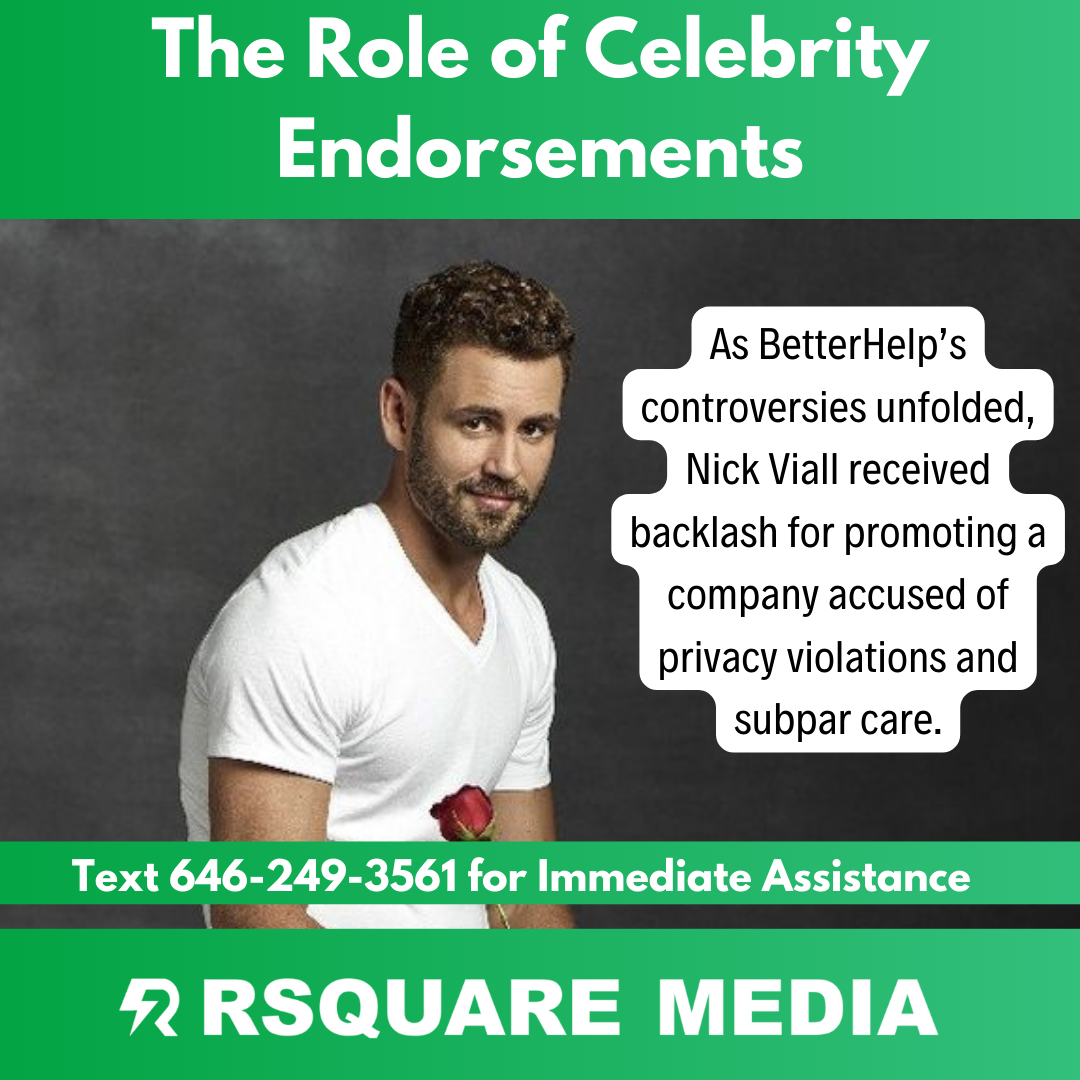
Section 6: The Importance of Reputation Management for Companies and Influencers
- Why Reputation Matters in Mental Health: Reputation management is critical for businesses in sensitive industries like mental health. The public needs assurance that their mental health needs will be respected and kept confidential.
- Building a Crisis Response Strategy: BetterHelp’s lack of timely and transparent responses has amplified the backlash. Effective crisis response strategies could have lessened the impact on their reputation.
- Influencer Reputation Management: For celebrities, maintaining a strong personal brand is crucial. By aligning with brands like BetterHelp without thorough vetting, influencers risk alienating their audience and damaging their reputations.
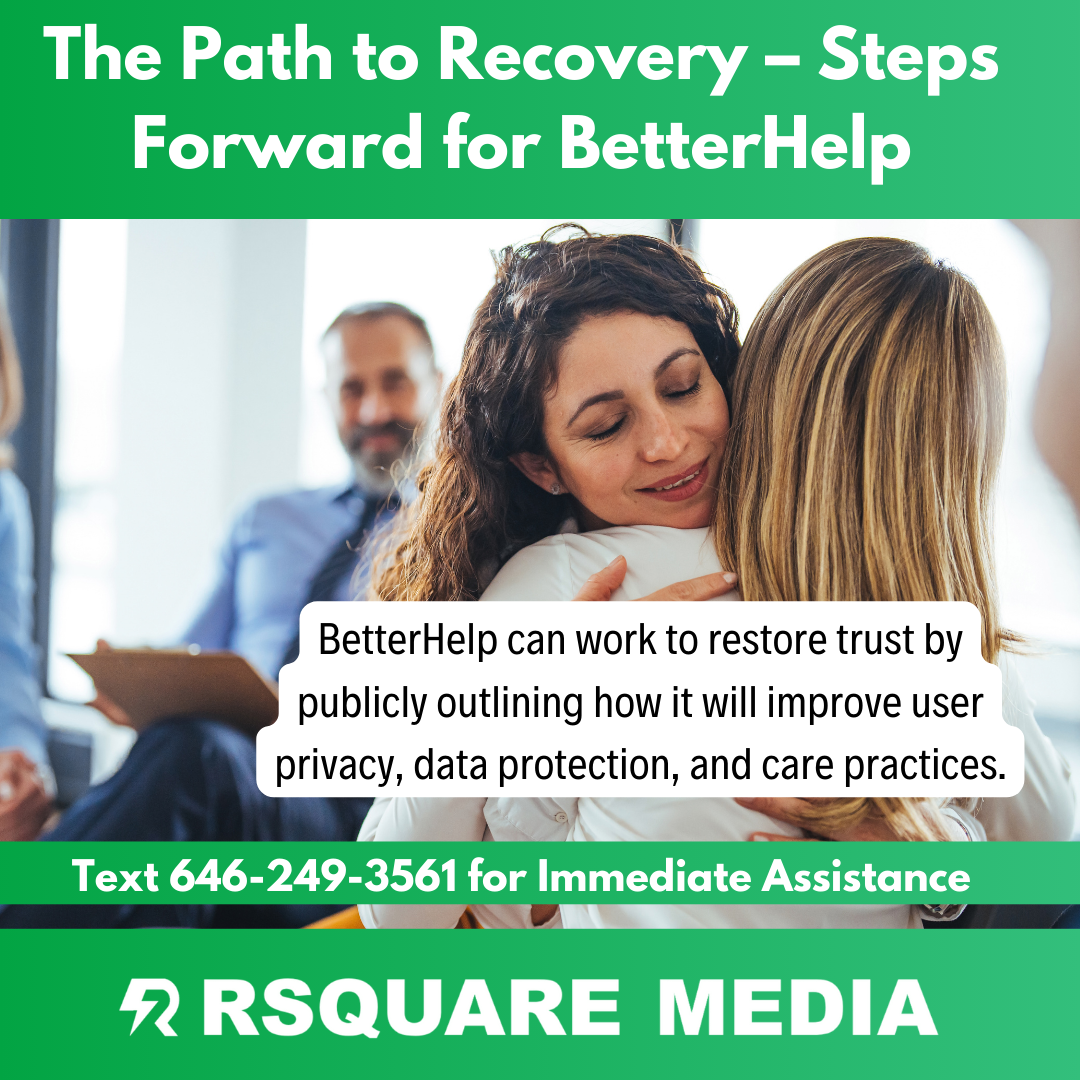
Section 7: The Path to Recovery – Steps Forward for BetterHelp
- Improving Transparency and Accountability: BetterHelp can work to restore trust by publicly outlining how it will improve user privacy, data protection, and care practices. Ensuring accountability and implementing transparent processes will help mitigate ongoing concerns.
- Rebuilding Public Trust through Engagement: Engaging with the public and offering detailed responses to criticisms could help BetterHelp re-establish credibility. Trust can be rebuilt through open dialogue and corrective actions.
- Rethinking Sponsorships with Mental Health: This controversy should serve as a lesson for all brands involved in mental health. Thoughtful, transparent marketing strategies are essential to maintain the trust of both users and the public.

Conclusion: Lessons Learned – Why Reputation Management Services Are Vital
The BetterHelp case highlights the vulnerabilities of any brand operating in the mental health space. Public trust is delicate, and even one controversy can have far-reaching implications for a brand’s reputation. Similarly, influencers must take care in selecting their partnerships, especially when they influence sensitive decisions like mental health support. Reputation management services, like those offered by Rsquare Media, provide essential support to address these challenges, offering strategic solutions to rebuild trust and maintain a positive public image.
If you’re facing a reputation crisis or need assistance in managing public perception, Rsquare Media is here to help. Specializing in reputation management services, Rsquare Media provides personalized solutions to safeguard your brand image. Visit rsquaremedia.com for a free consultation today and take control of your reputation.
BetterHelp, a popular online therapy service, has recently faced serious backlash and legal issues, including multiple class-action lawsuits and a significant settlement with the Federal Trade Commission (FTC). BetterHelp was ordered by the FTC to pay $7.8 million in March 2023 after allegations of mishandling user privacy. According to the complaints, the company allegedly shared clients’ private and identifying information with social media platforms, including Facebook, to target ads, which caused outrage among users who had entrusted the platform with sensitive health data. These issues have led to further lawsuits that accuse BetterHelp of privacy violations and claim that the platform’s practices resulted in emotional distress and other forms of harm to users.
The scandal has placed not only BetterHelp but also its endorsers under scrutiny. Influencers and podcasters like Alex Cooper, Nick Viall, and Alix Earle, who have partnered with BetterHelp as sponsors, are now facing criticism for promoting the platform. As prominent figures with large followings, they’ve been called out for endorsing a service that allegedly mishandled user data and care, raising questions about influencer responsibility in mental health sponsorships. Many believe that endorsers should more carefully evaluate the ethical implications of the services they promote, especially in fields as sensitive as mental health.
The fallout from these controversies underscores the importance of reputation management, as both BetterHelp and its endorsers face mounting backlash that could impact their public image and trust. For businesses and influencers alike, safeguarding reputation is crucial—especially in the mental health sector, where clients need assurance of privacy and proper care. This case serves as a potent reminder that reputation matters in maintaining public trust and credibility.
For businesses looking to protect or restore their reputation, Rsquare Media offers reputation management services. Schedule a free consultation with Rsquare Media today to ensure your brand remains resilient in challenging times. Visit rsquaremedia.com for more information.
Sources:
- BankInfo Security
- Maastricht University

